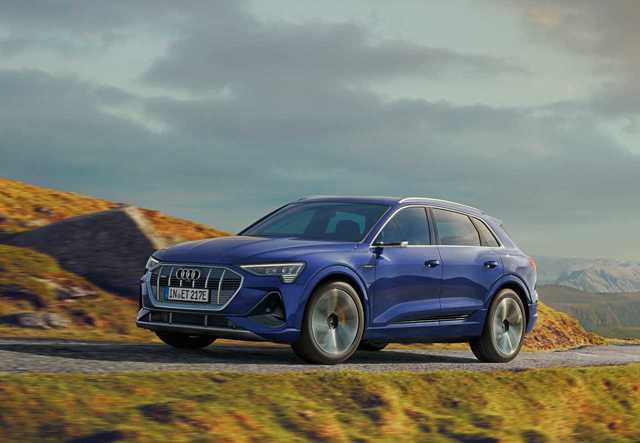Big manufacturers have launched a race to develop their electric car programs in a hurry, after a decade looking the other way. But the turn that the market is taking due to demand and the entry of new emission standards has meant an awakening that is not as easy as expected.
In an unusual gesture, the new president of Audi has confirmed that despite the good commercial progress and the good reception by users of its e-Tron, the reality is that the mechanical part is not up to its main competition, Tesla.
Markus Duesmann, who took over as Audi CEO last April, said they had a lot of work ahead of them, and also acknowledged that Tesla’s technological advantage remained enormous.
According to Mr. Duesmann “Tesla currently has bigger batteries because its cars are built around the batteries. Tesla is two years ahead in terms of computing and software architecture and autonomous driving.”
The press has highlighted the e-Tron itself as an excellent product in aspects such as design, production quality, and handling. But it has failed in a significant way in one of the critical aspects of an electric car, such as its efficiency and autonomy. An e-Tron that under the EPA cycle stayed at just 203 miles, far from the 352 miles of the Tesla Model X.
To reduce this gap, Audi launched a new division called Artemis last May, in charge of developing technologically advanced electric cars more quickly.
The first project of the new division will be to develop a “pioneering model for Audi quickly and without bureaucracy”, in the words of Duesmann himself. Described as a “highly efficient electric car,” the model will hit the market in 2024. Given its technological focus, it may have the same philosophy as the BMW iNEXT, an electric SUV that will become the Bavarian firm’s technological flagship in 2021.
Artemis will be led by Alex Hitzinger, who was in charge of Autonomous Intelligent Driving (AID), the autonomous driving division of Audi launched in 2017 and absorbed today by Argo AI, the self-driving company jointly owned by Ford ( its creator) and Volkswagen (which invested in it after reaching a series of collaboration agreements with the North American firm).
But four years in the electric car industry is too long. Many things can happen at this time, to which Audi must also add the issue of emissions standards that will be tightened in the coming years.
A time where the competition like Tesla itself will take advantage to establish itself in the backyard of Audi, which by the time it expands and improves its proposals, will see how the North Americans have a plant with a capacity for 500,000 electric cars, and capable of producing their batteries.

